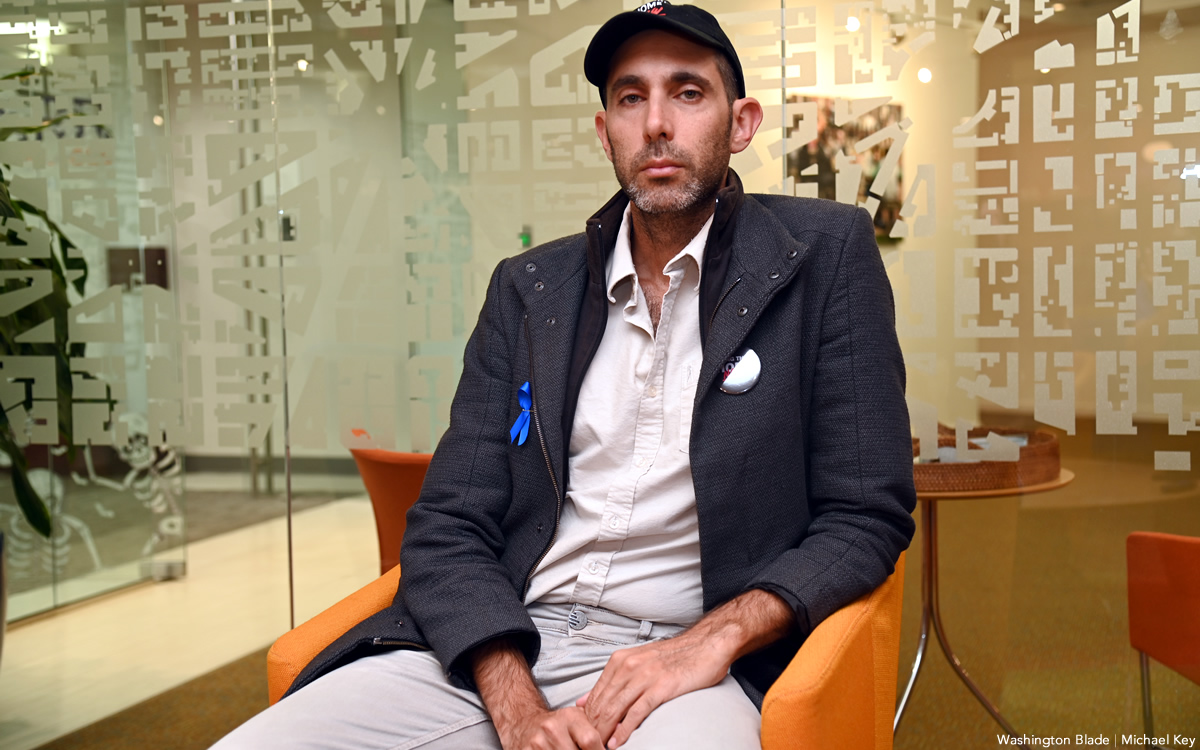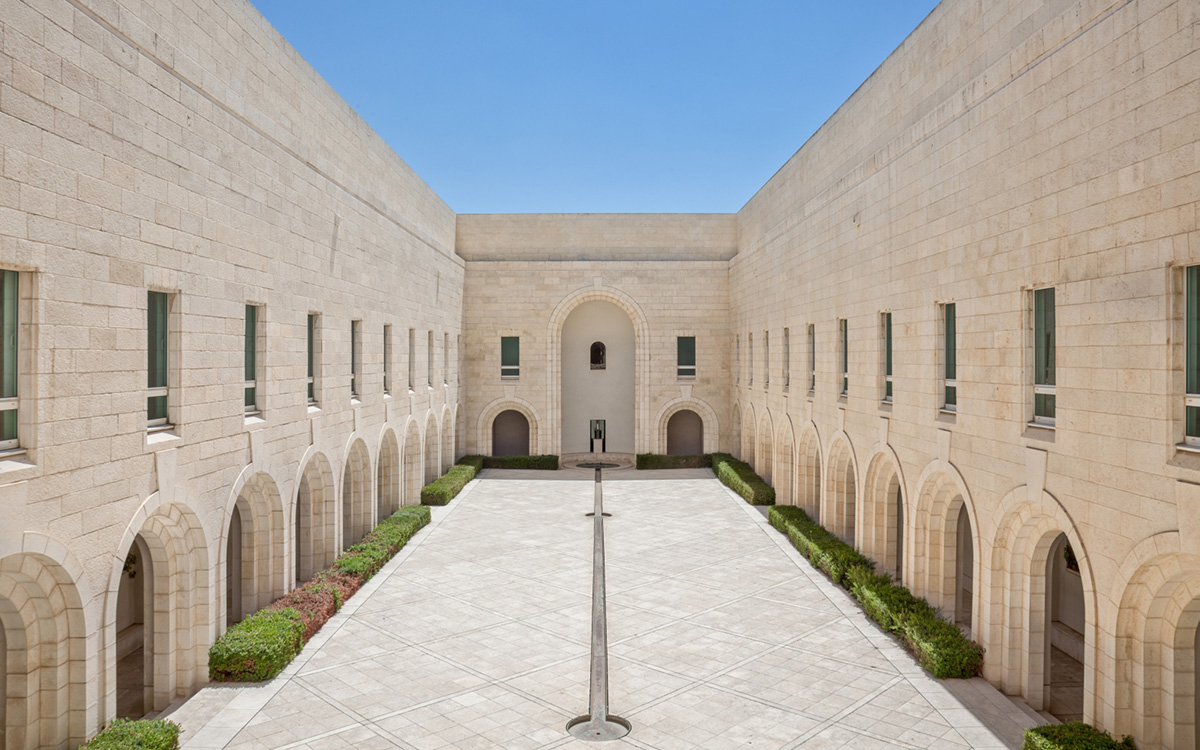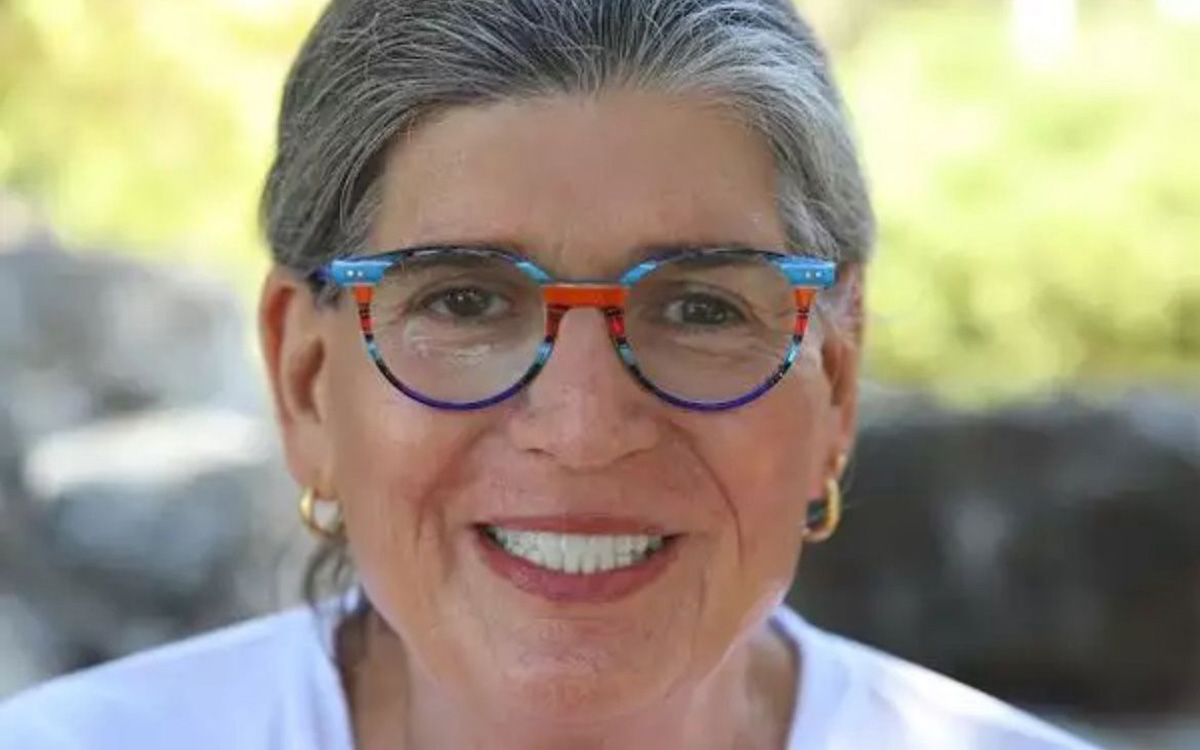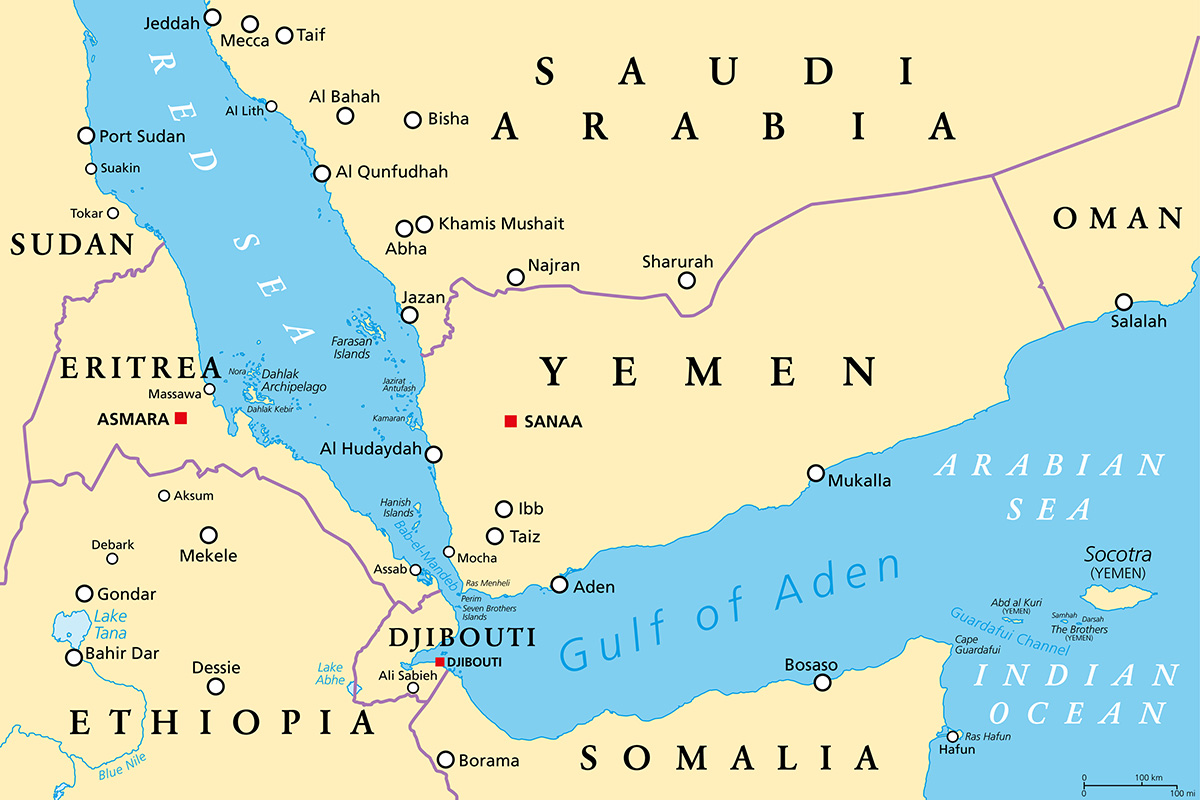Middle East
Hamas releases gay Israeli man’s sister
Militants kidnapped Yarden Roman-Gat on Oct. 7

Hamas on Wednesday released a gay Israeli man’s sister who had been held hostage in the Gaza Strip since Oct. 7.
Media reports indicate Yarden Roman-Gat is one of 12 Israelis and four Thai nationals who the militant group released.
Roman-Gat, a physical therapist who works with elderly people and those with physical and mental health issues, and her family had just returned to Israel after a vacation in South Africa when they decided to spend the Simchat Torah holiday with Gat’s parents in Be’eri, a kibbutz that is near the border between Israel and Gaza. They were in their home on Oct. 7 when Hamas launched its surprise attack.
Media reports indicate four militants placed Roman-Gat, Gat, their 3-year-old daughter and two other Be’eri residents into a car. One of them had reportedly been placed into the trunk.
Roman-Gat and Gat jumped out of the car with their daughter as it approached Gaza. Roman-Gat’s brother, Gili Roman, a teacher and member of the Nemos LGBTQ+ Swimming Club who lives in Tel Aviv, on Oct. 30 told the Washington Blade that the militants began to run after them. He said they were shooting at them when his sister handed her daughter to her husband because he was able to run faster.
Gat hid with his daughter for 18 hours before they reached Israeli soldiers in Be’eri. He told Roman he last saw his wife hiding behind a tree to protect herself from the militants who were shooting at her.
“For us it’s like a Holocaust story,” Roman told the Blade. “It’s a horror story, the worst horror story that you can imagine.”

More than 1,400 Israelis have been killed since the war began. This figure includes at least 260 people who Hamas militants murdered at an all-night music festival in Re’im, a kibbutz that is a few miles away from Be’eri. Thousands of other Israelis have been injured and Roman-Gat is among the 240 people who militants from Hamas and other Muslim terrorist groups kidnapped.
The Hamas-controlled Gaza Health Ministry says Israeli airstrikes have killed more than 13,000 people and injured thousands of others in the enclave.
A truce between Israel and Hamas that allowed for the release of hostages in exchange for the release of Palestinians in Israeli prisons took effect on Friday.
The Associated Press notes roughly 160 hostages remain in Gaza. The truce that the U.S., Egypt and Qatar brokered was extended two days on Monday, but is slated to expire tonight.
Middle East
Israeli Supreme Court rules country must allow two mothers on child’s birth certificate
LGBTQ activists praised the ruling

Supreme Court judges on Thursday unanimously ruled that the Population Authority must register female couples as mothers on the birth certificates of their children they have together.
The decision was made following a petition submitted by nine female couples, mothers of children born through anonymous sperm donation. The panel of judges, headed by Supreme Court President Uzi Fogelman and Judges Ruth Ronen and Alex Stein, rejected the Population Authority’s claim that the birth certificate reflects only biological parentage and ruled that both the birth mother and her partner must be registered as the child’s parent.
“The exclusion of the non-biological parent from the birth certificate means a preference for the position of the biological parent over parenting based on other parents,” Fogelman wrote in the ruling. “In terms of substantive law, the parenting of both parents — the biological parent and the non-biological parent — is equal and it includes the same basket of parental rights and duties. I do not believe that when at the level of substantive law there is equality between the parents, there is room to distinguish between them at the level of registration in the birth certificate.”
Fogelman also referred to the interpretation that may be given to the lack of registration on the birth certificate as “an offensive message according to which we are dealing with relationships that are different in nature and essence: while biological parentage is ‘real’ parentage, non-biological parentage is inferior and suspect parentage, a kind of ‘conditional’ parentage.”
The ruling does not apply to male couples because the petition dealt with couples who conceived with the help of anonymous sperm donation.
The ruling was issued as part of a petition submitted around eight years ago by nine female couples, who claimed that not registering the non-biological mother on the birth certificate deprives the child of rights that include acquiring foreign citizenship and petitioned the Interior Ministry and the Population and Immigration Authority to issue their children amended birth certificates that include the names of both mothers.
The Population Authority refused the couples’ request on the grounds that the birth certificate is a document that reflects the biological parentage at the time of birth, and is not updated with the passage of time. The petitioners claimed that the Population Authority’s policy violates the right to family life and the right to equality, since it discriminates against same-sex couples. And as evidence, they pointed out that when it comes to heterosexual couples, the Interior Ministry issues them corrected birth certificates — even in cases of adoption by the spouse of the biological mother or in the case where sperm donation is used for the birth of the child.
Fogelman accepted the respondents’ position according to which the birth certificate was intended to document the identity of the child at the initial point in time of his life. Alongside this, he rejected the respondents’ position that the birth certificate was intended to reflect biological parentage.
“A birth certificate is one of the most important documents a person has. It confers a basket of rights and is also used for the purpose of regulating citizenship in foreign countries,” said attorneys Daniela Ya’akobi, Hagai Kalai and Achinoam Orbach, who represented the petitioners. “For all these years, the state has insisted on denying children of two mothers a birth certificate that reflects the reality of their lives. The judgment of the High Court of Justice put an end to ugly and unnecessary discrimination, which has no purpose and never had. It is a great victory, but no man needs or wants to win his country. The time has come for the state, on its own initiative, to allow full equality of rights for all its citizens, including LGBT people.”
Aguda Chair Hila Peer responded to the ruling.
“This is a historic day when our families are equal,” she said. “For years the Interior Ministry has refused to register proud mothers on the birth certificate and now, thanks to the High Court of Justice, we are taking a significant step towards equality.”
Middle East
Sheila Weinberg becomes Israel’s first transgender council member
Former teacher elected in Kiryat Tivon on Feb. 27

WDG is the Washington Blade’s media partner in Israel. WDG published this article on their website.
Sheila Weinberg on Feb. 27 wrote another chapter in LGBTQ history in Israel when she was elected as the country’s first transgender council member.
Weinberg, the 65-year-old chair of the “Transiot Israel” association and a former teacher, was elected to the Kiryat Tivon Local Council after her “More to Tivon” list won 37.7 percent of the votes.
In the past she was a member of the LGBTQ Committee in Kiryat Tivon and in the last year she was active in the protest against the proposed judicial reforms. Weinberg has two children and a granddaughter. She started the process of affirming her gender about five years ago when she was 60 years old.
“Many people in Kiryat Tivon knew exactly who I was and about my past. It didn’t bother. It seems to me that in certain places it was helpful,” Weinberg told WDG. “The residents of Tivon decided clearly in favor of a liberal, pluralistic and democratic Tivon. I have been a member of Meretz for many years and in these elections we joined a single list with ‘Yesh Atid’ and ‘Our Tivon’ and ‘Hoze Hadash’ (‘New Contract’), a list whose prominent values are equality among all. On the list were the women who founded the LGBT Committee in Tivon that operates with full vigor.”
Despite the historic title as the first trans council member in Israel, Weinberg is not content with just being active in the issues of the LGBTQ community, and aims (to become involved with) the education portfolio in her locality.
“I intend to use this branding to operate in Tivon in two main areas: Education and the LGBT community. Naturally, I see myself as someone who has a well-founded view of education in Tivon and I would be happy to be incharge of the education in Tivon, alongside the LGBT community. I have been teaching all my life. I taught for 35 years in several places, including the University of Haifa, and since the war started I have also been replacing a teacher who went into the reserves voluntarily.
Furthermore, I think I got my foot in the door for trans girls and trans boys. I will of course also continue to act as the chairman of ‘Transiot Israel’ and at the same time promote the needs of our community, which in the Haifa and Tivon area suffers from a lack of people.
I think I can speak for girls whose life path was less paved than mine. For those girls and boys who were thrown out on the street, out of school, who suffer physical and verbal violence, who are discriminated against economically and socially. And most of all, I would love to hear from my friends in the community and my friends there what the priorities are, not necessarily in Tivon but in Tel Aviv and other places.”
Other candidates from the LGBTQ community won in other municipalities in Israel.
In Tel Aviv-Yafo, Chen Arieli and Moti Reif entered the council for another term, as well as Reut Nagar and Shahar Levy. Assaf Weiss will serve as a council member in Ramat Gan, lawyer Daniela Jacobi in the Ramat Hasharon Council and Ella Kaufman will serve another term on the Kadima Council.
Middle East
Houthi court sentences 13 people to death for homosexuality in Yemen
Iran-backed rebel group controls large swaths of country

Reports indicate a court in Yemen has sentenced to death 13 people who had been charged with homosexuality.
Agence France-Presse reported the court in Ibb Governorate, which Iran-backed Houthi rebels control, announced the sentences on Feb. 4. The province’s main city is roughly 125 miles south of Sanaa, the rebel-held Yemeni capital.
The State Department’s 2022 human rights report notes Yemeni law criminalizes consensual same-sex sexual relations, “with the death penalty as a sanction under the country’s interpretation of Islamic law.” The report also indicates there were “no known executions of LGBTQI+ persons in recent years.”
The Houthis have been attacking commercial ships in the Red Sea since Hamas on Oct. 7, 2023, launched a surprise attack against southern Israel from the Gaza Strip. The U.S. and the U.K. last month launched air strikes against the Iran-backed rebel group.
-

 State Department4 days ago
State Department4 days agoState Department releases annual human rights report
-

 District of Columbia2 days ago
District of Columbia2 days agoCatching up with the asexuals and aromantics of D.C.
-

 South America2 days ago
South America2 days agoArgentina government dismisses transgender public sector employees
-

 Politics5 days ago
Politics5 days agoSmithsonian staff concerned about future of LGBTQ programming amid GOP scrutiny












